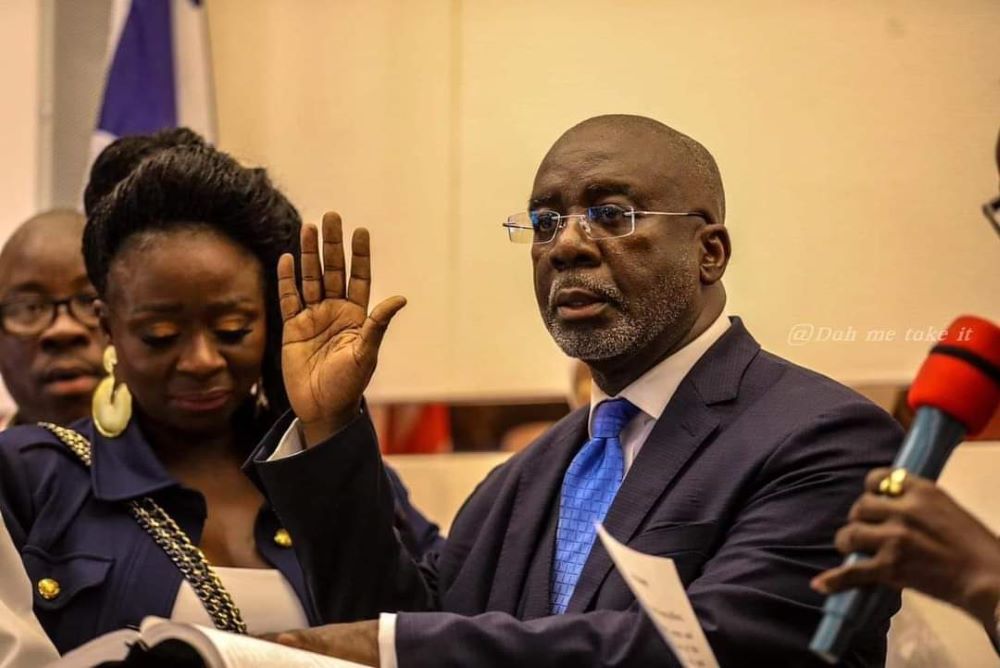The political landscape of Liberia is experiencing a tumultuous power struggle centered around the speakership of the House of Representatives. Embattled Speaker Jonathan Fonati Koffa is resisting attempts to remove him from office, denouncing the process as illegal and refusing to vacate the premises. The House, under the leadership of Rep. Richard Nagbe Koon, who claims the speakership following a controversial vote last year, is escalating its efforts to forcibly remove Koffa and his belongings from the Speaker’s office. This conflict is marked by accusations of illegality, executive interference, and a deep divide within the House.
The central issue revolves around the legitimacy of Koon’s claim to the speakership. Koffa maintains that the process through which Koon assumed the role was unlawful and refuses to recognize his authority. He argues that any attempt to remove him from office must follow the same “illegal” procedures used to install Koon. Koffa points to the involvement of Justice Minister Oswald Tweh, suggesting that the executive branch played a role in orchestrating the power shift. This accusation further complicates the political dynamics, raising concerns about the separation of powers and the integrity of the legislative process.
Adding to the complexity of the situation, Koffa challenges the authority of the House to demand his removal. He contends that a letter from the Chief Clerk, instructing him to vacate the office, was issued prematurely and without the proper authorization of the full plenary. Koffa points to the fact that the House committee’s report on the matter was deferred for further discussion, rendering the Chief Clerk’s letter an “unlawful usurpation” of the plenary’s authority. This procedural dispute highlights the deep divisions within the House and underscores the lack of consensus surrounding Koffa’s removal.
The efforts to oust Koffa have escalated, with the House now threatening to forcibly remove his belongings from the Speaker’s office. This action follows a report from the House Committee on Rules, Order, and Administration detailing Koffa’s refusal to vacate the office despite their requests. The committee argues that this situation is hindering the smooth functioning of the House, preventing Koon and his staff from accessing their offices and carrying out their duties. They have sought the counsel of the Justice Minister, who advised them to issue an ultimatum to Koffa, followed by the forceful removal of his belongings if he fails to comply.
The Justice Minister’s involvement adds another layer of controversy. While Koffa accuses the executive branch of orchestrating his removal, the Justice Minister is now advising the House on how to proceed with the eviction. This apparent contradiction raises questions about the neutrality of the Justice Ministry and the extent to which the executive branch is influencing the internal affairs of the legislature. The Justice Minister’s recommendation to involve the media and civil society organizations in the potential eviction further politicizes the issue, creating a spectacle around an already volatile situation.
The ongoing struggle for the speakership represents a serious challenge to the stability and legitimacy of the Liberian House of Representatives. Koffa’s defiance, coupled with the contested procedures surrounding Koon’s ascension, has created a deep rift within the legislature. The threat of forcible removal and the involvement of the Justice Ministry further exacerbate the tension, raising concerns about the rule of law and the separation of powers. The outcome of this power struggle will have significant implications for the future of Liberian politics and the functioning of its democratic institutions. This conflict highlights the fragility of democratic processes and the potential for political maneuvering to undermine institutional stability. The involvement of the executive branch raises questions about the balance of power and the potential for undue influence in legislative affairs. The situation remains highly volatile, and the resolution of this conflict will be crucial for the future of Liberian democracy.


